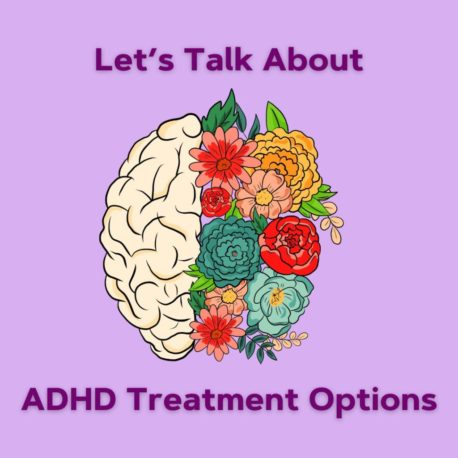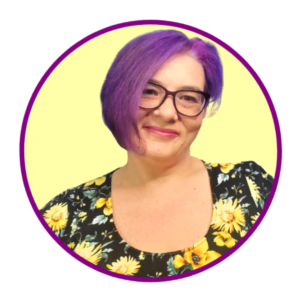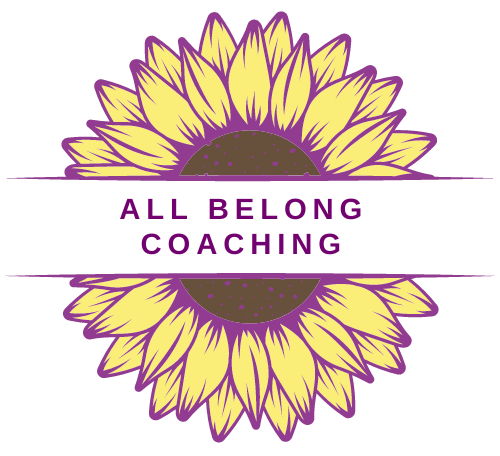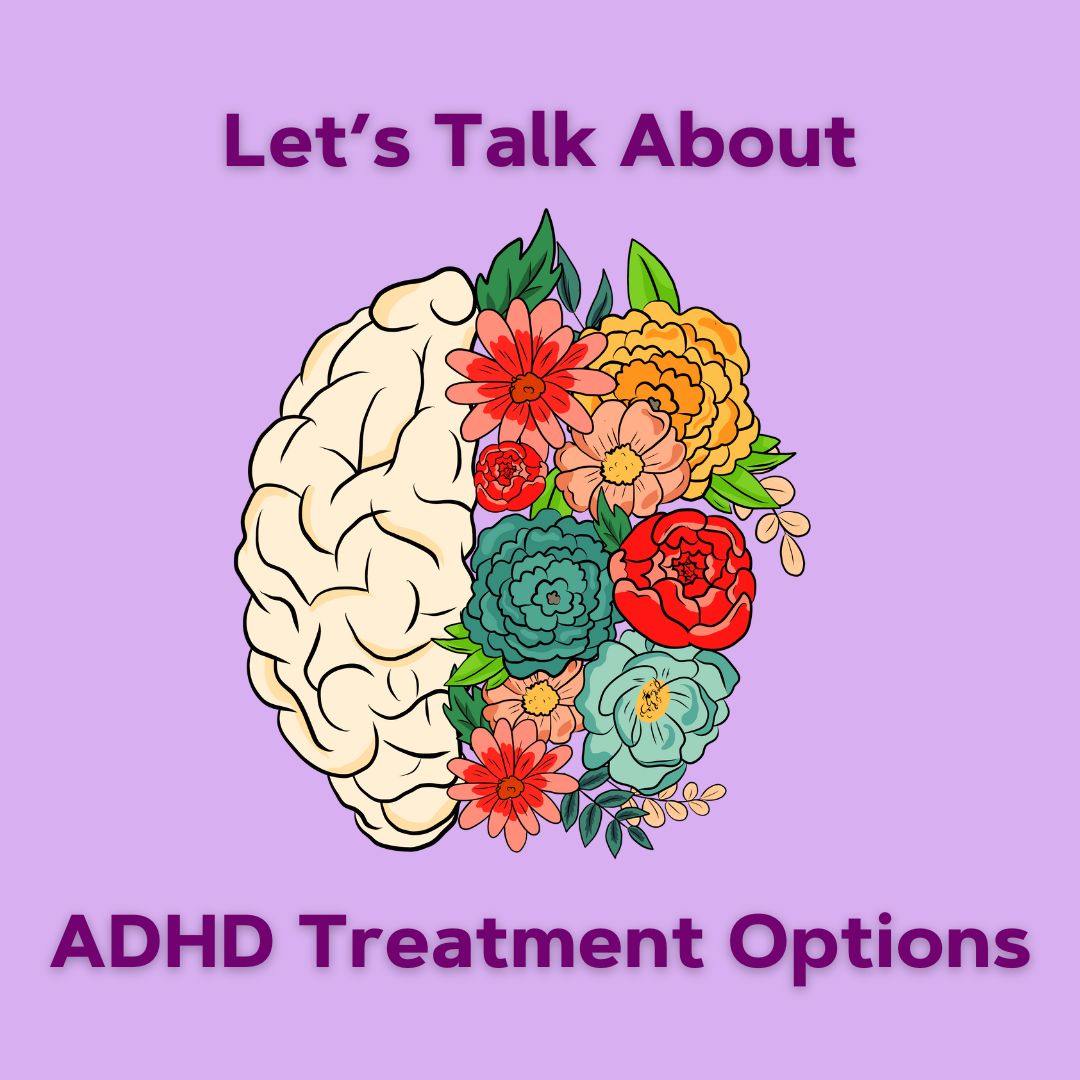ADHD Treatment Options
For many people, when they find out that they or someone they love has ADHD, they immediately begin worrying about treatments, medications, and what impact those might have on day to day life. There are a lot of misconceptions and stigma surrounding ADHD treatment options, and medication specifically.
While medication and psycho-therapy are definitely options for some people; not everyone wants, needs, or is able to take medications and access that type of therapy. Alternately, many people use medication and traditional therapy as one *part* of their overall treatment plan. So what treatment options may be available?

I am not a medical or psychiatric doctor, a therapist, or a social worker. I’m offering information, NOT advice. Please seek appropriate professional help if advice is needed. ~ Kat Sweeney

Medication, Psychiatric/Psychological
In the US, this is the most recommended treatment given to parents, teens and children when it comes to ADHD. This typically involved diagnosis, medications, and maintenance monitoring.
- Diagnosis – The process of getting an official diagnosis from a medical provider. Many adults find this challenging and opt to forego the official process. However, there can be a few reasons that diagnosis *may* be important. In the US, an official diagnosis is needed in most cases for access to both medication and to educational or work accommodations.
- Medication – There are a wide variety of medication options available. Traditionally there are two types of prescription medication prescribed – stimulant or non-stimulant medication. Your medical provider can help you select what medication, if any, is right for you or your child. Ask your provider to explain to you the pros and cons of any medication they suggest.
- Maintenance – Again, here in the US most medication providers will want to see their patients often enough to monitor their progress. When beginning or changing medications they may want to see you more often, and then once the team has determined the medication is correct, they will want to see you every few months for however long you are on medication. Keep track of side effects, improvements, and questions in between appointments and don’t hesitate to contact your providers office if you have any urgent questions.
Therapy – Several Types
Therapy is probably the next most utilized treatment option in the US, and there are multiple types of therapy.
- Talk Therapy – this is often required of folks taking medication. This may be done by a variety of professionals and involves discussing goals, feelings, uncovering patterns, and teaching emotional intelligence and responsibility. Therapists may or may not also be able to utilize coaching methods.
- Behavioral – this type of therapy is controversial currently. It has been utilized to address problem behaviors that commonly occur in children that have ADHD by utilizing things like structured time, rigid routines, and increasing positive attention. This is controversial because many people believe that this type of therapy is akin to training a pet, and causes the child to believe that they need to mask their symptoms. Many people endorse this type of therapy, it’s not one that I personally recommend.
- Social Skills – similarly, social skills training has mixed reviews. For many years, we’ve been taught ways to help children learn to socialize better. The believe is that this leads to increased confidence, closer friendships, and fitting in better. On the other hand, I find it important to be wary of this because it imposes our own definitions of social skills onto our children or ourselves. We sometimes feel we need to help our children make more friends, but that is not a goal or desire for our child. That’s not always a bad thing. However, social skill building can be valuable for a person who actively identifies social skills they’d like to improve because it will make their lives more complete.
- Other – There are many other types of therapies that people are finding useful in managing their ADHD. Some people enjoy art therapy, music therapy, play therapy, and more. My belief is that anything that makes you feel good about yourself is worth investigating. If one type of therapy makes you feel bad about yourself – it’s not the right one for you!


ADHD Coaching
In case you didn’t know, I am an ADHD Coach, so my opinion is heavily biased regarding this option. Having said that, I believe that it is one of the more effective ways of working with both individuals with ADHD, and with parents and caregivers of kids with ADHD.
- Parent Coaching – Many studies are beginning to show that the first and best step toward helping kids with ADHD to thrive is coaching and educating the parent or caregiver. A coach working with caregivers can help shift perspectives, challenge thinking, provide resources they may not have access about, and provide you with validation and support. In addition, I believe the key is to help parents to become the curious and connected collaborators their kids really need to succeed.
- Individual/Personal Coaching – This can be provided to younger children, students, teens, young adults, older adults – any individual with ADHD – or even with ADHD characteristics can benefit from individual coaching. A good coach can help you build skills like goal setting, planning and prioritizing, time management, organizing, problem solving, and more. In addition – coaches may be able to help you with things like improving your self awareness, emotional regulation, self esteem, stress management, and self advocacy skills.
- Other Types Of Coaching – There are many types of coaching available. General life coaches are amazing, however I suggest folks with ADHD look for coaches who have ADHD also. In addition, there are many specialty niches within even ADHD Coaching. You may want a specific financial coach, I have a business coach, you may have a confidence coach, or a transformation coach. Spend some time looking at what each coach does, what help they offer, and considering what your specific needs are.
Education/Work Supports
One thing that is often overlooked, or not considered as part of the team of solutions, is the education and work supports that you may be able to request to make the systems work for your brain instead of trying to make your brain work in systems not meant for it.
- One thing you can consider in requesting accommodations is your (or your child’s) environment. Do you need less distractions or less noise? Do you need not to have a certain lighting? Is your child’s sensory needs being meant and/or are their senses being over-stimulated. Environment is one of the most often discussed accommodations and therefore sometimes one of the easier things to get.
- Another thing is communication styles, learning styles, etc. Do you need to learn things by reading or by listening or by doing? Does your child need a note taker, or to have all instructions recorded to listen to? Do they need to be able to test verbally as opposed to written? These are all things that can be requested.
- The last one I will mention is types of additional supports. Particularly in schools this may show up as speech therapy, one on one therapy, music therapy, assistive technology, assistance devices, tutors, a safe person at school – what types of support can you request for your child that would help the world around them be more accessible.


Executive Skill Building
Executive skill building can be very beneficial to students and adults. Many ADHD coaches can help with this, but there are also therapist and specific executive function coaches who work only on building those skills.
- I do caution everyone to consider what skills they want to build in themselves or their children because they *want* to work on them, as opposed to because they *should* work on them. Pushing yourself or your child to do this *can* cross over into giving the message that you need to be fixed, or need to develop some magic level of some specific skill to be “normal.” Engage in skill building when there are skills that you genuinely want to build because it will make you happier.
- Executive skills that can be built are things like time management skills, organizing skills, task initiation, flexible thinking and problem solving.
- In addition you may be able to work on skills like regulating your emotions, building resiliency, setting boundaries, and improving working memory.
Dietary & Movement
I am not going to say a lot about these issues, as they are definitely not areas that I have studied extensively.
- Diet – Many experts, parents, and individuals with ADHD report various dietary changes that help them manage their ADHD symptoms. I don’t advise any particular diet or dietary restrictions. My advice is to nourish your body, and if making a dietary change helps you better able to manage or improve something you struggle with – then you do you! (But please do double check with medical providers for any type of extreme dieting)
- Exercise – Again, many people swear that exercise helps. Some even believe that enough positive exercise can reduce or remove the need for medication. I am not an expert in this. My thoughts and feelings are similar to above – I suggest you find ways to move your body. Aside from that – if walking makes you feel good – do it; if weight lifting makes you feel clear headed – go for it; if you don’t feel good in your body unless you work out for 2 hours a day – the find a way to fit it in. Do what makes you feel good.
- Supplements, Vitamins, Etc. – There are many different vitamins and supplements that may be suggested by a million different people. Medical doctors, holistic doctors, psychiatric doctors, miracle workers, pharmaceutical companies and every day people you know all have opinions of what works. There are a variety of things that are believe to help with brain functioning, and those things often change. As always I recommend talking about ANY vitamins or supplements you or your child are considering taking *before* you start taking them. If it sounds like a miracle, and “too good too be true” – it probably is.
- You can read my feelings about the “Core Four” – nourishment, hydration, movement and rest – HERE.


Many Other Options
As I mentioned above, there are a million opinions, treatments, and options available. As I’ve said above – as long as whatever you are trying is safe and healthy, if it makes you feel good – rock on!
People find things like EEG Biofeedback, Chiropractic Therapy, Brain Training, Yoga, Mindfulness, Meditation, CBT, peer support groups, acupuncture, and many other options. Often these types of things work best as supplemental treatments in addition to other treatment options.
My Main Suggestions
As I’m sure many of you have picked up on, I believe that some combination of therapy, medication, and coaching is almost always best for the starting ground. You and/or your child can’t access the parts of your brain that you need to learn or to activate executive function skills when you are dysregulated. For example, in my own personal life – I feel that it was not until I added medication and coaching to my “tool kit” that I was able to access the skills that I had given up trying to learn because it felt impossible.
Having said that, I truly do believe that what works for people is going to be different all the way around. What results people WANT even will be different. For some people they may truly want to be a more organized person. Another person may not care so much about that, but would like to figure out how to prioritize your workload. So I am all about trying different things and different combinations of things and examining what parts or pieces really work for you, and ditching the things that don’t – without shame.
I hope that this information gives you some things to think about. As always, if you have questions please feel free to email me. If you’d like to work with an ADHD coach individually OR as a parent/caregiver of someone with ADHD – feel free to book a discovery session with me today for FREE. Book your call right now HERE.

🌻 Don’t Delay Joy 🌻
Kat Sweeney
Having a peer community is often one of the keys to battling depression, isolation, and hopelessness. If you have ADHD, or are caregiving for someone with ADHD – please consider joining my FREE Facebook Peer ADHD Community. This group is inclusive, supportive, and welcoming!

